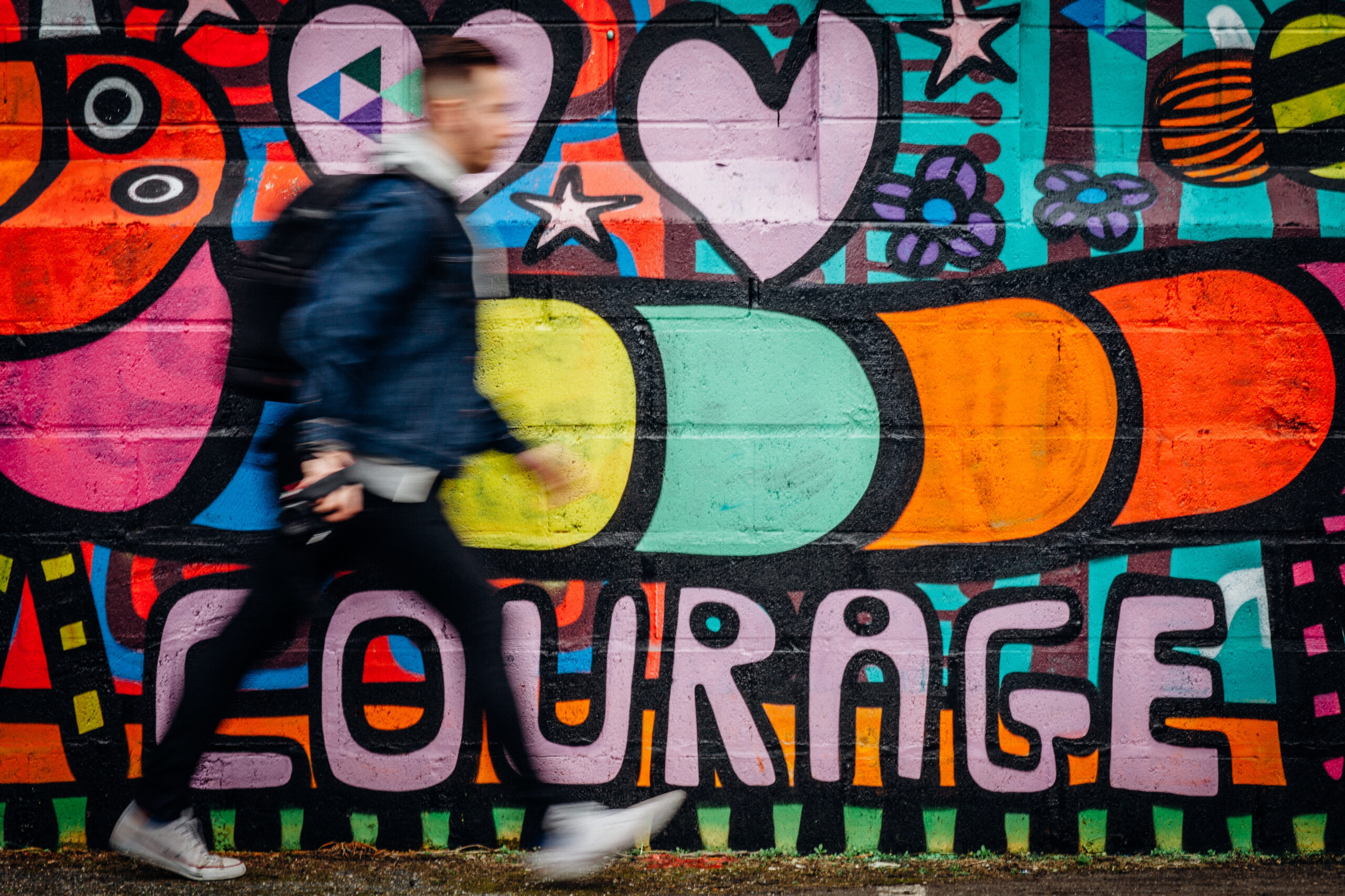When a friend or loved one is facing a cancer diagnosis, it can make you feel helpless. You feel like nothing you say or do will make any difference. Sometimes the fear of saying the wrong thing shuts you down entirely.
We’ve all been there: typing, deleting, and re-typing a message, feeling like our words don’t come anywhere close to conveying the right emotions. You want to help, but are unsure of where to start. What is too much? What is actually helpful? I’ve learned that trying—despite the fear of failing—is always worth it. Even as the wife of a cancer fighter, I sometimes struggle to determine what is truly helpful to Tommy in the moment. It’s not easy, but sometimes the smallest things can make the biggest impact.
I wanted to share the acts of support we have most appreciated and found most meaningful. This is not a prescription for the perfect support package—every cancer fighter is different and will have different needs and appreciate different actions, but here are some ideas that might open the door for you on your support mission.
Send a care package.
Ideas: natural lip balm, ginger candies or tea, water bottle, blanket, funny socks, moisturizer, warm hat or beanie, entertainment (movies, crosswords, etc.), noise-cancelling headphones (treatment centers and hospitals can be loud), eye mask, neck pillow, loungewear, video streaming service subscription, journal or planner (organization is so helpful and why I created “The Better Book” for Tommy!), a book you love (not cancer-related), massage gift certificates, or a robe. There are a lot of great products and resources out there that can really help a fighter unwind and feel comforted.
Shoot them a note of encouragement, and let them know they don’t need to respond.
I had no idea how overwhelming the social aspect of cancer fighting would be. Doctors message you constantly, your support system cheers for you, and friends and family seek updates. You want to keep up with everyone, but it can be exhausting to respond to every message in a timely manner. We found it to be a huge relief when someone would send something like, “Hey. I love you and am proud of you. No need to respond, just know I’m here for you anytime.” Receiving a message like this is spirit-lifting and doesn’t add stress. I feel supported in the moment and know I can respond later when I have more time or mental energy.
Don’t ask, just do.
This may seem counter-intuitive, but sometimes asking what you can do adds stress. When someone messages me and asks what they can do, I find myself with another task. What could I have this person do? What do I need? What is too much to ask? Sometimes it’s nice to not have to give a specific recommendation. Of course, be sensible—don’t throw a surprise party or sign them up for ice skating lessons. Think of small, sweet gestures that can be done on your own, and just do them!
Ideas: Send a food delivery gift card; offer to come do the dishes; bring over a meal—but make it clear you’re just dropping off, so they don’t feel the need to host; send a package with toilet paper, paper towels, or other things that might be on the back burner for a person in the throes of treatment; give them two or three options for nights you are free to babysit, if they have kids; mention you’re at the grocery store, and ask if there’s anything they need. Even the simplest things are appreciated!
Say “That Sucks.”
Even with the best intentions, sometimes it’s best to save your advice. You can’t “fix” cancer. We found that hearing, “That sucks,” was one of our favorite responses. Fighters don’t want pity. They want to know that you understand and are there for them. Keep it simple, and be kind.

Send a card.
Sending and receiving cards is one of my favorite ways to show support. Coming home from a long day of treatment or appointments to a cheery card is the best. Send something meaningful, funny, thoughtful, irreverent, sweet—it all works! We are convinced that laughter is the best medicine and love receiving cards that make us laugh.
Just listen.
I hear this so often from cancer fighters. Being able to talk about one’s fears and struggles, without feeling like a burden, is so important. Heavy topics can be uncomfortable to discuss, but making yourself available for a conversation like this can mean the world. Fighters are dealing with very real, very scary situations. They want to feel normal, but also occasionally need to say these scary thoughts out loud. Be the person that can handle hearing what they need to share.
Offer to bring meals/entertainment to infusions.
Some treatments can last for hours—offer to bring a meal! Let them know you don’t have to stay, but would love to drop by if they need it. If they’re up for it, hang out!
Send money.
This can be a difficult ask for a cancer fighter. When you’re fighting for your life, it seems almost cruel that bills/rent/insurance expenses keep coming in. No one likes asking for money. No one likes to share that they’re struggling financially. Fighting cancer is all-consuming. Many are not able to work during treatments. Even if you’re able to continue working, medical bills and other expenses pile up. As a supporter, sending money can feel awkward, but I can promise it’s appreciated. Lifting the financial burden can be a huge relief. Feel uncomfortable sending a check? Send a gift card. We found car services, restaurants/food delivery, and just plain Visa gift cards to be most helpful.

Talk about other things!
Tommy will sometimes start a day by saying “I don’t want to ‘cancer’ today.” Cancer takes up so much time and energy that sometimes you just don’t want to think about it if you don’t have to. If you ask how they’re feeling (with one eyebrow lifted, meaning you’re willing to talk about cancer with them) and they don’t dive in, don’t push it! The pockets of time when a person can forget about cancer are just as important as the moments when they want to have deep talks about it.
Keep coming to the table, and don’t take things too personally.
Even when you have the best intentions, sometimes what you do or say may not be what your friend or loved one needs—or wants—to hear in that moment. Believe me, I have said the wrong thing countless times, but it doesn’t mean I’ve stopped trying. Cancer is hard! It’s frustrating and infuriating and exhausting. The person you are supporting may not have the energy to thank you, or appreciate your act of support in the way you expect, but it doesn’t mean it’s not appreciated. Be compassionate, and continue to be there for them.






